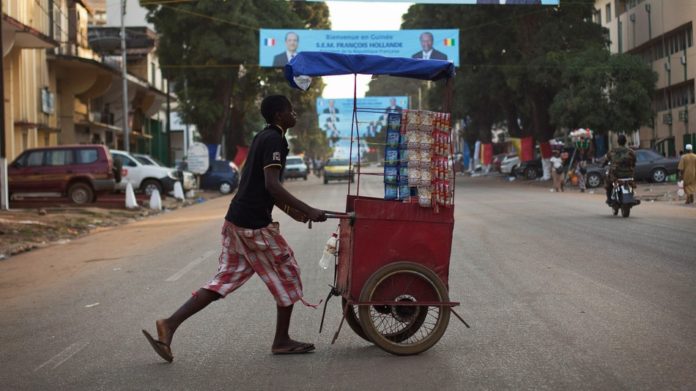Ebola is crippling the economies of three countries

The international response to Ebola is still too slow and piecemeal, Doctors Without Borders warned Tuesday, as officials said the disease is crippling the economies of the three West African countries hardest hit.
Ebola has infected nearly 17,000 people, of which about 6,000 have died, according to the World Health Organization. The vast majority of infections are in Guinea, Liberia and Sierra Leone, poor countries that have been left to handle the crisis without sufficient help, said the medical aid group.
“Foreign governments have focused primarily on financing or building Ebola case-management structures, leaving staffing them up to national authorities, local health care staff and NGOs (non-government organizations), which do not have the expertise required to do so,” said the group, which is a primary provider of treatment in the outbreak, in a statement Tuesday.
It reiterated its call for countries with biological-disaster response teams to deploy them.
In addition to killing to thousands, the Ebola outbreak, which was identified in March in Guinea, has shut hospitals, schools and markets, hampered cross-border trade and resulted in the suspension of many of the airline flights.
In response, the World Bank lowered again on Tuesday its growth projections for the hardest-hit countries. It had already cut them in October. The World Bank found that the Ebola epidemic is also crippling the economies in Guinea, Sierra Leone and Liberia.

Ebola’s fiscal impact in the three West African countries amounts to more than $500 million for 2014 alone, according to the World Bank report.
Guinea’s economy will grow just 0.5 percent this year, down from an expected 4.5 percent before the crisis began, said the bank in its latest assessment of Ebola’s impact. Sierra Leone is expected to register 4 percent economic growth, down from a pre-crisis expectation of 11.3 percent, while Liberia will see 2.2 percent growth, down from 5.9 percent. The economic effects are expected to worsen in Guinea and Sierra Leone next year, when both economies will shrink, according to the latest estimate.
President Barack Obama is highlighting advances in research for an Ebola vaccine and pushing Congress to approve his request for $6.2 billion to confront the disease abroad and to secure against its spread in the United States. The president will visit the National Institutes of Health on Tuesday to congratulate the team on their work on a vaccine.
A study published by U.S. researchers last week concluded an experimental Ebola vaccine appears safe and triggered signs of immune protection in volunteers who tested it.
Obama’s request for money to confront Ebola is pending before Congress. White House spokesman Josh Earnest says lawmakers should “take prompt action on this.”
Meanwhile, in Europe, Spain is now Ebola-free as no new cases have surfaced in the required 42-day period since victim Teresa Romero recovered.
Additional reporting by Mashable
